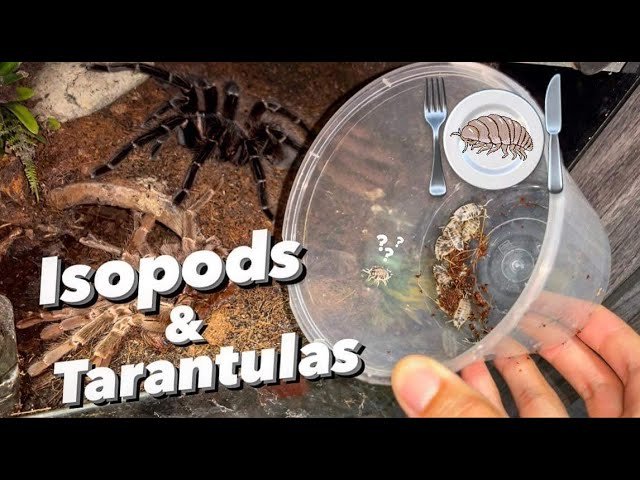In our latest blog post, we dive deep into the crucial reasons why we should not leave isopods in our tarantula’s enclosure. Join us as we explore the potential risks and implications of this common practice in the exotic pet-keeping community.
Why You Shouldn’t Leave Isopods in Your Tarantula’s Enclosure
Introduction
Hello, fellow exotic pet enthusiasts! Today, we are diving into the fascinating world of tarantula care with a crucial discussion on why it is not advisable to leave isopods in your eight-legged friend’s enclosure. While these tiny crustaceans might seem harmless at first glance, there are important considerations to keep in mind when it comes to their interaction with tarantulas.
The Curious Relationship Between Tarantulas and Isopods
In the wild, tarantulas and isopods coexist in the same ecosystem. Isopods play a vital role as decomposers, helping to clean up organic matter and maintaining the balance of their environment. However, when it comes to captivity, the dynamics change, and we need to be mindful of the potential risks involved in keeping isopods in a tarantula’s enclosure.
Why Isopods and Tarantulas Don’t Mix
-
Isopods Won’t Harm Tarantulas?
- While isopods themselves might not pose a direct threat to tarantulas, it’s essential to remember that these tiny creatures could become an unintended snack if food sources run low.
-
Using Isopods as Clean-Up Crews Isn’t Wise
- Despite their value in maintaining terrarium cleanliness, isopods themselves are valuable as a food source for tarantulas. Leaving them in the enclosure could lead to unintended consequences.
-
Tarantulas Can Feed on Isopods
- As part of their diet, tarantulas are known to prey on isopods. This predatory behavior can disrupt the balance within the enclosure.
-
Testing Tarantulas’ Interest in Isopods
- It’s essential to observe your tarantula’s behavior when isopods are introduced. Some tarantulas may show interest in them, potentially leading to unintended consequences.
-
Isopods Are Fully Gut-Loaded for Nutrition
- While isopods are nutritionally beneficial for tarantulas, their presence in the enclosure could lead to unpredictable interactions and feeding patterns.
Maintaining Optimal Habitat Conditions
Ensuring that your tarantula’s enclosure maintains optimal humidity levels is crucial for their well-being. Introducing external elements like isopods could disrupt this delicate balance and potentially stress out your arachnid friend.
Conclusion
In conclusion, while isopods serve a valuable purpose in the ecosystem, leaving them in your tarantula’s enclosure may not be the wisest choice. It’s crucial to consider the potential risks and disruptions they may bring to your pet’s habitat. Always prioritize your tarantula’s well-being and consult with exotic pet care professionals for tailored advice.
FAQs
- Can tarantulas and isopods coexist peacefully?
- Are there alternative clean-up crew options for tarantula enclosures?
- What should I do if my tarantula shows interest in isopods?
- How can I ensure my tarantula’s enclosure remains clean without isopods?
- Are there specific tarantula species that might benefit from isopod interaction?
